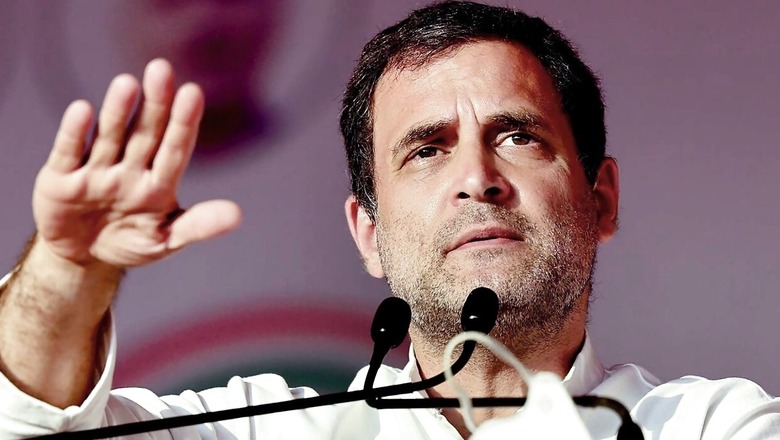
views
“You will never in your life rule over these other people,” thundered Rahul Gandhi in Parliament the other day, with characteristic ineloquence. First of all, who are those “other people?” They appear to be Indians residing in the state of Tamil Nadu. And who is “you?” By all accounts, he was talking about the legitimately elected Government of India.
The apologists for Rahul Gandhi, who must have a full-time job on their hands, would argue that this is not how he meant it. When he spoke about a Union of States, he was merely highlighting the federal nature of our country. It is in the constitution after all.
Also Read: OPINION: Dear Rahul Gandhi, If India is Not a Nation, Whom Do You Call Father of the Nation?
“I tried to make them think of India as a whole, and even to some little extent of this wide world of which we were a part. … The task was not easy; yet it was not so difficult as I had imagined, for our ancient epics and myths and legends, which they knew so well, had made them familiar with the conception of their country, and some there were always who had traveled far and wide to the great places of pilgrimage situated at the four corners of India.”
But that was Nehru’s Congress. When people welcomed him with slogans of “Bharat Mata ki jai,” he would ask them about their concept of the mother. Today’s Congress would probably ask whether it is meant to invoke Hindu religious imagery, making the slogan sectarian. Or ask why the slogan is in Hindi. Is that an affront to those “other people”?
But the Congress of old, just like the Congress of today, was a product of circumstances. Back then, Congress had political stakes among every group of people in every part of India. A sense of national unity suited them. That can hardly be said for Congress today. And so you find Rahul Gandhi’s Congress playing with the fire of secessionist rhetoric, thinly disguised as support for federalism.
In his reply to the Motion of Thanks in the Lok Sabha, Prime Minister Narendra Modi also referenced Tamil Nadu but stressed the words of Tamil poet Subramania Bharati on the oneness of India. When it comes to making space for the multiple identities of groups of people within our country, there is a high road and there is a low road. Which one should we take?
A Common Language?
Because Rahul Gandhi is so interested in Tamil Nadu, let us talk about language first. In India, there is a common myth that Hindi is our national language. Despite our courts saying clearly that there is no such thing as a national language, the myth endures. Each time an ignorant politician utters this myth or even a common person makes this mistake on social media, people from “non-Hindi states” bristle. And for some reason, it is supposed to be the BJP’s fault.
But where does this myth come from? Where would people get this crazy idea that Hindi is our national language? Perhaps it is because the original Indian constitution of 1950 did in fact provide for Hindi to become the one and only official language of the Union government. Further, the constitution gave the government fifteen years to fully transition from the use of English to that of Hindi. It may thus be argued that the only Prime Minister whoever tried to impose Hindi upon all of India, including Tamil Nadu, was Jawaharlal Nehru.
However, as the deadline of January 26, 1965 approached, Nehru began to lose nerve, especially because of massive anti-Hindi demonstrations in Tamil Nadu. In May of 1963, the Parliament finally passed the Official Languages Act, which allowed the use of English to continue, in addition to Hindi.
But the damage had already been done. The seeds of mistrust had been sown. Tamil Nadu has not seen a Congress Chief Minister since 1969, making it the first state in India to become Congress mukt.
For what it’s worth, Nehru was even opposed to the idea of linguistic provinces, believing that they were a threat to the unity of India. This is why he resisted splitting Bombay State into Maharashtra and Gujarat, as well as the reorganisation of Hyderabad state, Mysore, Travancore and Madras state into the modern Andhra Pradesh (till 2014), Karnataka, Tamil Nadu and Kerala. In this respect, the views of V K Krishna Menon, the man closest to Nehru, are the most grating of all (as described by A.G. Noorani in a commentary on Selected Works of Jawaharlal Nehru):
“As a sectarian sub-nationalism of fascist orientation was developing in the Tamil country, he argued, a separate Tamil province would be very anti-national, while the Kerala State would doubtless go Communist after the next general elections with disastrous domestic and international consequences.”
Congress has always centralised power while it still could
In 1974, Congress leader D K Barooah sealed his position in history when he announced curtly that “India is Indira; Indira is India.” He was named party president by Indira Gandhi soon after. Over time, the image of D K Barooah as a sycophant has come to be accepted by the people of this country. And along with it, the impression that the Emergency is the only time the Congress party tried to take power away from the people.
This is far from true. Less than six months after being promulgated on January 26, 1950, the Indian constitution was amended. The aim was to shut down two magazines, one linked to the Sangh and the other to Communists. When the government had tried to censor them before, the magazines had fought back and won their rights in court, citing freedom of expression. That’s when the government amended the constitution and brought in ‘reasonable restrictions.’ At the time, the Congress was in charge of the Union Government, and literally every state government in the country. They still would not take chances with unfettered freedom of expression.
The first time the Congress ever lost an election in India was in 1957 in Kerala. Soon after, the elected state government was dismissed. The pattern continued over the next several decades, with the Congress dismissing dozens of opposition-ruled state governments, sometimes several of them in a single day.
In fact, with the exception of the Emergency, the single biggest power grab in India’s history is possibly the Anti-Defection law passed by Rajiv Gandhi in 1985. It should be noted that the Indian anti-defection law has no parallel in any other major democracy; not in America, not in Britain, and not in France, Germany or Australia. With this law in India, individual legislators lost all bargaining power and became shadows of the party leadership. All power in the leadership, and all the leadership in one family.
Decline of Congress Led to Appeasement and Divide and Rule
Looking at the political landscape today, it seems hard to believe that Rajiv Gandhi began his 1989 election campaign from Ayodhya, promising Ram Rajya. Three years before, Rajiv Gandhi had passed the ironically named Muslim Women (Protection of Rights on Divorce) Act, denying maintenance to then 76-year-old Shah Bano from the husband who had pronounced talaq on her.
In those days, the Congress was still frighteningly dominant, but the political monopoly was clearly over. But because the party still had a base in every community, they tried to contain the restlessness by pandering to one and then to the other. The attempts at ‘divide and rule’ also began around this time, with the tiny community of Sikhs as the first victim.
But the decline of the Congress continued. The party’s vote share came down from over 40 percent in the 1950s and 60s to the high thirties and then dropped into the twenties. The Muslim vote bank politics became increasingly crucial to the Congress, which everyone noticed. The upper caste nature of the Congress was also noticed. And one by one, the various voting blocks left.
Today, with a vote share below 20 percent nationally, and not even enough seats to form the opposition, Rahul Gandhi seems to have discovered the virtues of decentralisation. What else do you expect a party now restricted to patches here and there, to do?
There has never been a better time for federalism in India
In February 2019, when CBI officials went to Kolkata for an investigation, the West Bengal state police under the imperious Chief Minister Mamata Banerjee, swooped in and detained them. However you feel about this ugly situation, could anyone imagine such a show of power by a state government in the face of a Congress-led center? Ask the BJP itself, which once saw five of its state governments dismissed in a single week.
In fact, we in India have learned more about the powers of state governments in the last seven years than in the remainder of the last seventy years. During this time, numerous state governments have revoked ‘general consent’ given to the CBI in their states, leaving the central agency at the mercy of state police. The powers of the central government even in core matters such as citizenship have been questioned, with several states deciding that they would not implement the law.
In a recent incident in Kerala, the car of the mayor of Thiruvananthapuram tried to cut off the official convoy of the President of India while headed for a public event. This of course is a ceremonial issue, but it reflects just how far we have come from the days of ‘India is Indira.’
And this is not just about center-state tensions, ego conflicts nor about a city mayor thumbing their nose at the President of India. We have actual positive developments that have led to real federalism, such as the GST Council. All decisions require at least a three-fourth majority, while the center gets only one-third of the votes. The states have two-thirds of the votes. By its nature therefore, the GST Council requires consultative decision making on a scale that has never happened in India before.
If India is a Conversation, Rahul Needs to Read before He Can Speak
Since Uttar Pradesh elections are the flavor of the season, let me recall something from Rahul Gandhi’s 2012 campaign in the state. Back then, somebody had told the Congress they had a chance and Rahul Gandhi decided to make a grand entry. The slogan chosen for the occasion was “Nehru ji ko yaad karenge, Rahul ji ke saath chalenge.” So if the Congress as well as its political and civil society allies want to know why we are still talking so much about Nehru, let me remind them that they started it. Like so much else, it just spun out of their control.
In July of 1910, a young Jawahar wrote to his father that he wanted to leave Cambridge because Cambridge was “becoming too full of Indians.” But Jawahar grew up, and his attitude towards Indians changed. He became humble. He learned to listen. He then wrote the Discovery of India. The question is this: when will Rahul grow up?
Abhishek Banerjee is an author and columnist. He tweets @AbhishBanerj. The views expressed in this article are those of the author and do not represent the stand of this publication.
Read all the Latest Opinions here











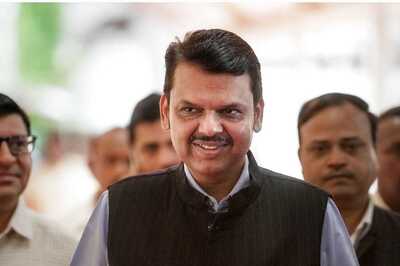
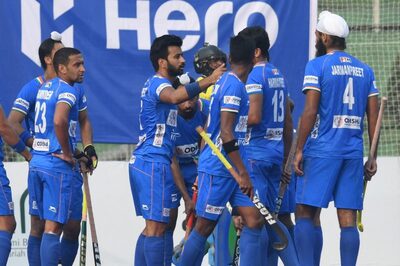
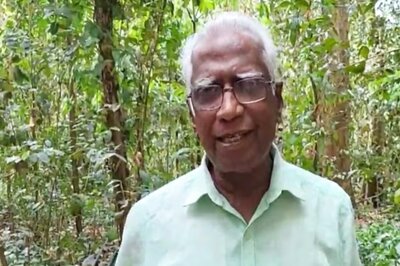

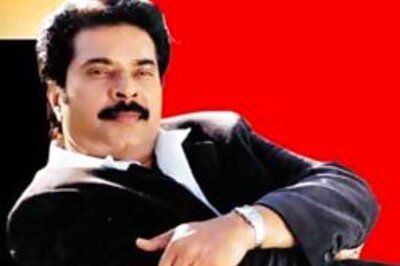


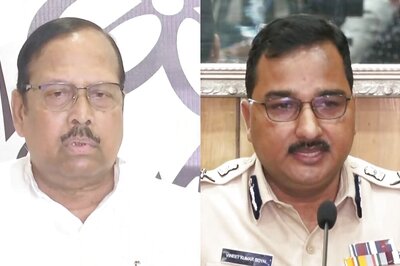
Comments
0 comment